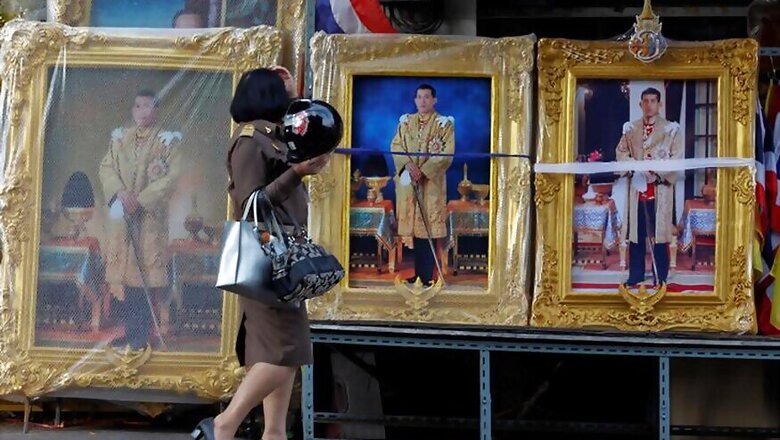
views
Bangkok: Five Thai teens and a 20-year-old were sentenced to between nearly 3.5 and 11.5 years in prison on Wednesday for setting fire to royal portraits, their lawyers said.
Thailand has one of the harshest royal defamation laws in the world and aggressively polices any perceived slight to its ultra-rich royal family, whose portraits are plastered across billboards and storefronts around the kingdom.
Lese majeste cases are highly sensitive and all media based in Thailand are forced to heavily self-censor to avoid falling foul of the law.
The six young men, five of whom are in their late teens, were arrested in May 2017 in the northeastern province of Khon Kaen after allegedly vandalising royal portraits.
"The charges included lese majeste, arson, criminal association and destroying property," said a spokesperson for Thai Lawyers for Human Rights (TLHR), who represented the defendants in a provincial court.
The 20-year-old and three others were convicted of two cases of burning royal portraits.
They were handed 11.5 years and seven years and eight months respectively, according to TLHR.
The two others were convicted of involvement in one case and sentenced to three years and four months behind bars, the lawyers said.
Thailand's lese majeste law specifically bans insulting the king, queen, heir or regent with 15 years per offence. But it is freely used to silence any criticism or sleights of the monarchy, an opaque, ultra-rich institution that wields vast power behind the scenes in Thailand.
Most cases are shrouded in secrecy and heard behind closed doors.
Defendants are rarely granted bail and conviction rates are above 90 per cent, leading many to plead guilty in exchange for lighter punishments.
Lese majeste prosecutions have shot up since an arch-royalist junta grabbed power in 2014, with many charges lodged over critical commentary posted or shared on social media.
The recent trend of record, decades-long sentences have continued under Thailand's new king Maha Vajiralongkorn, who took the throne in late 2016 after the death of his deeply-revered father Bhumibol Adulyadej.
He has yet to attain the widespread popularity of his father and spends large chunks of the year outside his kingdom, usually in southern Germany.




















Comments
0 comment